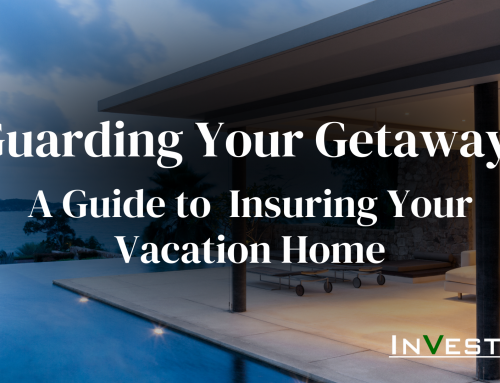The average homeowner files an insurance claim about once every 10 years.1 These claims can range from siding damage to fire to flooding to dog bites. Because the average homeowner’s premium is just a bit over $1,000 per year, while the average claim payout is less than $9,000, many who aren’t obligated by their lender to carry such coverage may wonder whether it’s even worthwhile.2
But even if you can afford to self-insure against major losses, why should you have to? Learn more about why it’s critical to maintain insurance coverage, as well as some of the questions you’ll want to ask when pricing out your coverage options.
Why Coverage is Critical
Homeowners’ insurance isn’t just to protect against damage to the home itself, but also to your possessions. As anyone who has attended a housewarming party can likely attest, outfitting a home with all-new belongings can be expensive; and the cost of replenishing one’s belongings after a break-in, fire, flood, or another catastrophic event can quickly reach six figures.
Moreover, high-net-worth individuals (HNWIs) are often at risk of far more than roof damage or a sewer backup. Without some sort of liability coverage attached to a homeowner’s insurance policy or an umbrella policy, you could be personally liable for any injuries that occur on your property, or, in some cases, injuries caused by a guest at your home. For example, if an intoxicated guest is involved in an auto accident after leaving a party at your home and injures someone else in the process, you could find yourself facing a multi-million dollar lawsuit.
Even if you prevail in such a lawsuit, legal fees can be a significant setback. And the greater your assets, the more you have at risk.
Selecting Your Coverage Options
Homeowner’s insurance generally covers a few different categories.
- Dwelling protection
- “Other structures” protection
- Personal property
- Liability for damage or injuries to another person or property
But not all these types of coverage cover everything you might expect. Before purchasing or renewing a homeowner’s insurance policy, you should ask:
- What claims and coverages are excluded? (For instance, many homes in low-lying areas aren’t eligible for flood coverage.)
- If certain coverage is excluded, can it be purchased for an additional fee?
- What documentation is required for personal property claims?
- Do I need an additional rider to cover expensive jewelry or one-of-a-kind artwork?
- Do I need an umbrella policy for additional liability protection?
The answers to these can vary based on your unique situation and the insurance options offered in your area.
Important Disclosures:
The opinions voiced in this material are for general information only and are not intended to provide specific advice or recommendations for any individual. To determine which investment(s) may be appropriate for you, consult your financial professional prior to investing. All performance referenced is historical and is no guarantee of future results. All indices are unmanaged and cannot be invested into directly.
The information provided is not intended to be a substitute for specific individualized tax planning or legal advice. We suggest that you consult with a qualified tax or legal advisor.
LPL Financial Representatives offer access to Trust Services through The Private Trust Company N.A., an affiliate of LPL Financial.
1 https://finance.zacks.com/average-homeowner-file-insurance-claims-8387.html
2 https://www.valuepenguin.com/home-insurance-statistics
LPL Tracking #1-05014846








